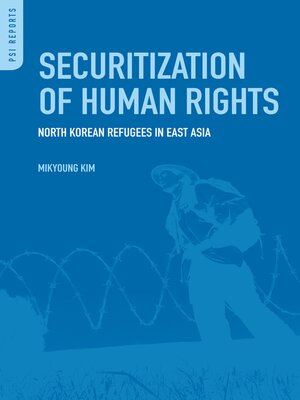Securitization of Human Rights
ebook ∣ North Korean Refugees in East Asia · PSI Reports
By Mikyoung Kim

Sign up to save your library
With an OverDrive account, you can save your favorite libraries for at-a-glance information about availability. Find out more about OverDrive accounts.
Find this title in Libby, the library reading app by OverDrive.



Search for a digital library with this title
Title found at these libraries:
| Library Name | Distance |
|---|---|
| Loading... |
This important book focuses on North Korean refugee human rights issues—a topic largely ignored in favor of addressing North Korea's domestic politics and deterrence of Pyongyang's nuclear threat.
The first book of its kind, Securitization of Human Rights: North Korean Refugees in East Asia examines the complex problem of "what to do with North Korea"—specifically, regarding human rights issues and treatment of North Korean refugees.
The book spotlights four key countries—China, Japan, South Korea, and the United States—with regard to their policy stance towards North Korean human rights issues, analyzing the dynamic tension between realpolitik and moral principle by looking at the regional governments' responses. Rather than focusing only on politics and foreign policy, this book is about the people involved, describing the plight of North Korean refugees, the perspective of South Korean citizens, and the quandary facing power elites in the regional governments.
The first book of its kind, Securitization of Human Rights: North Korean Refugees in East Asia examines the complex problem of "what to do with North Korea"—specifically, regarding human rights issues and treatment of North Korean refugees.
The book spotlights four key countries—China, Japan, South Korea, and the United States—with regard to their policy stance towards North Korean human rights issues, analyzing the dynamic tension between realpolitik and moral principle by looking at the regional governments' responses. Rather than focusing only on politics and foreign policy, this book is about the people involved, describing the plight of North Korean refugees, the perspective of South Korean citizens, and the quandary facing power elites in the regional governments.







